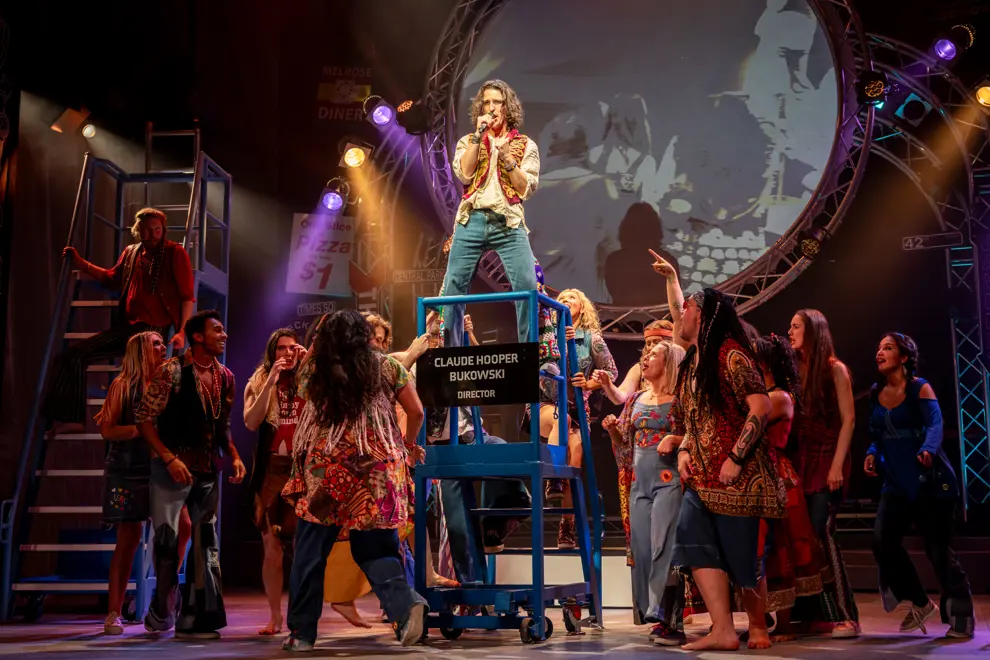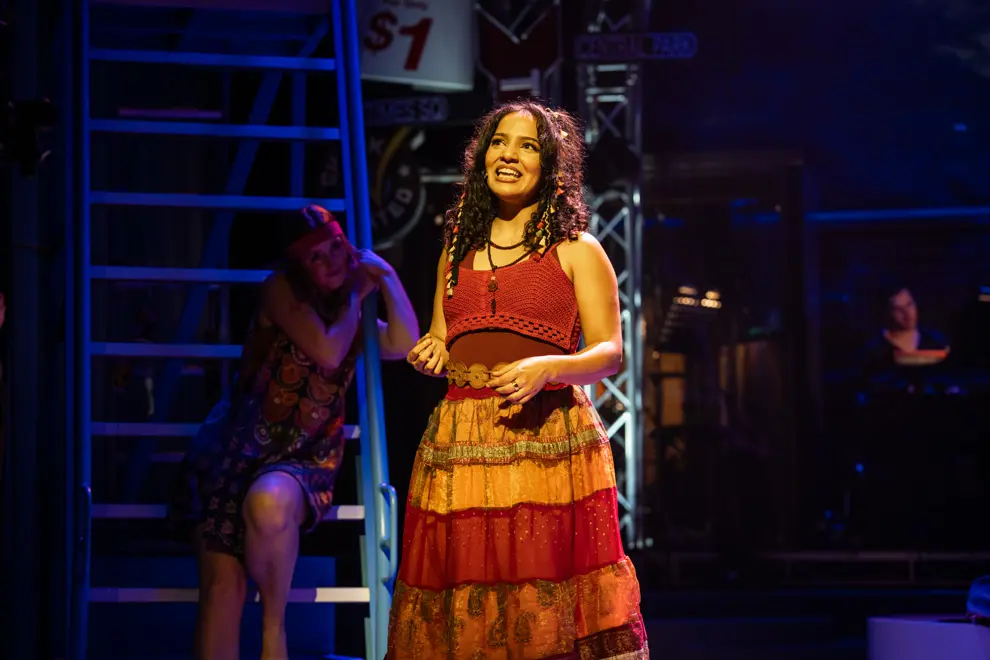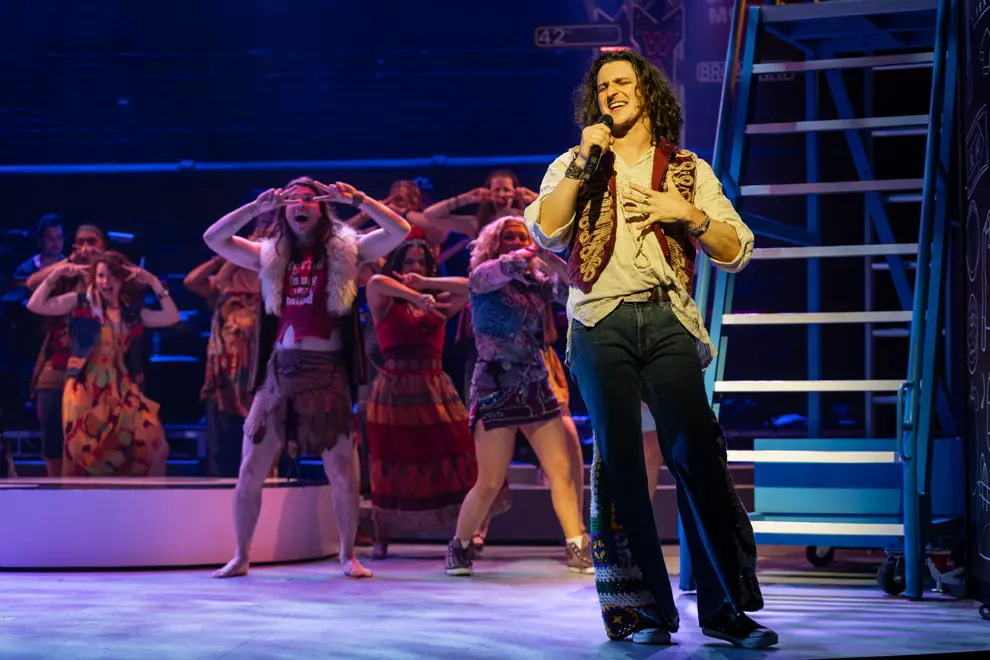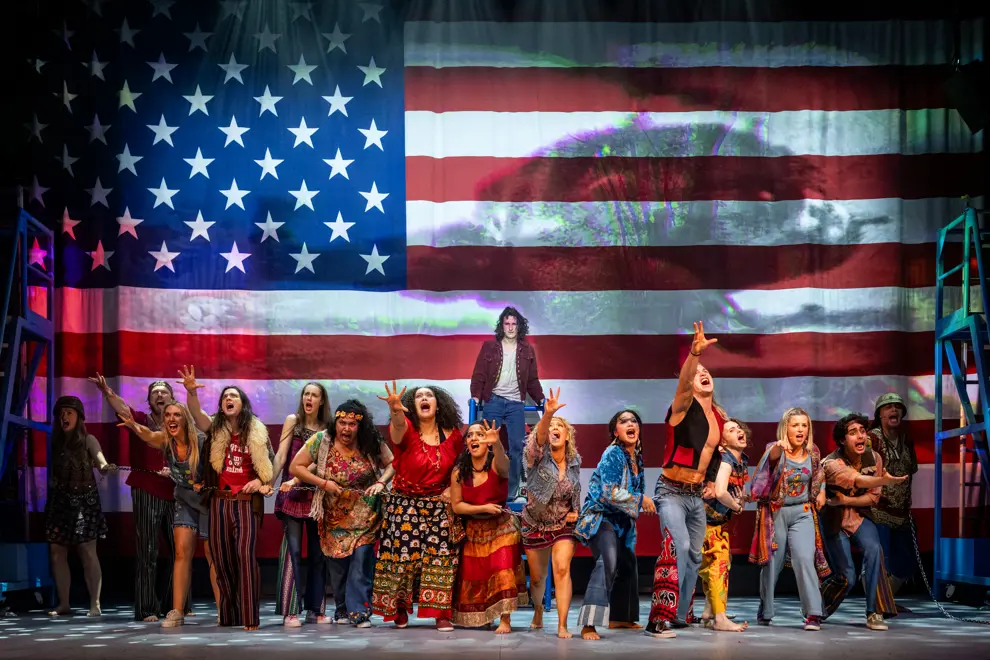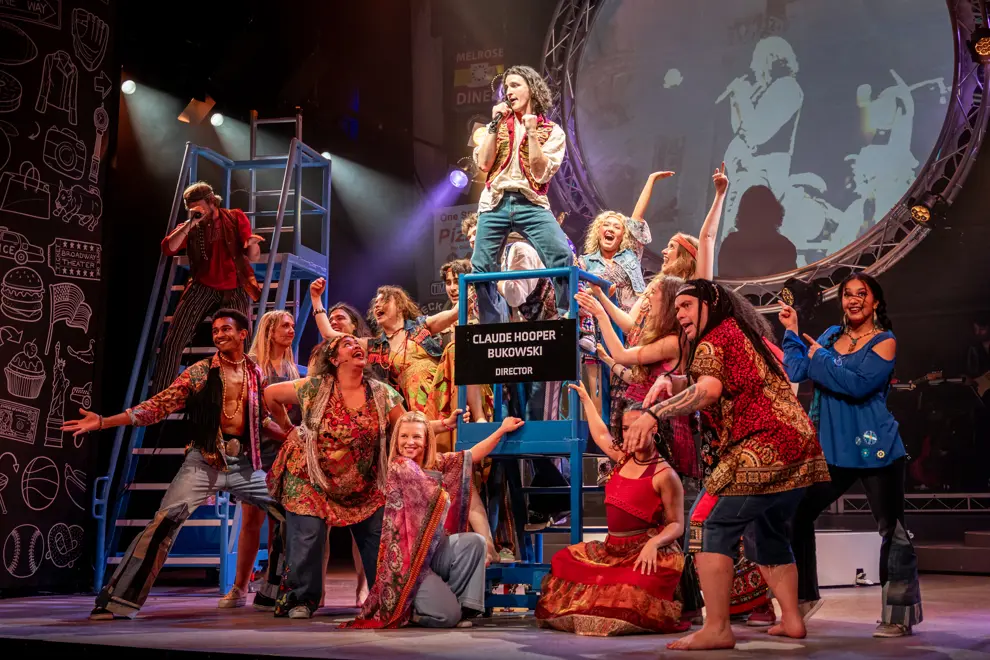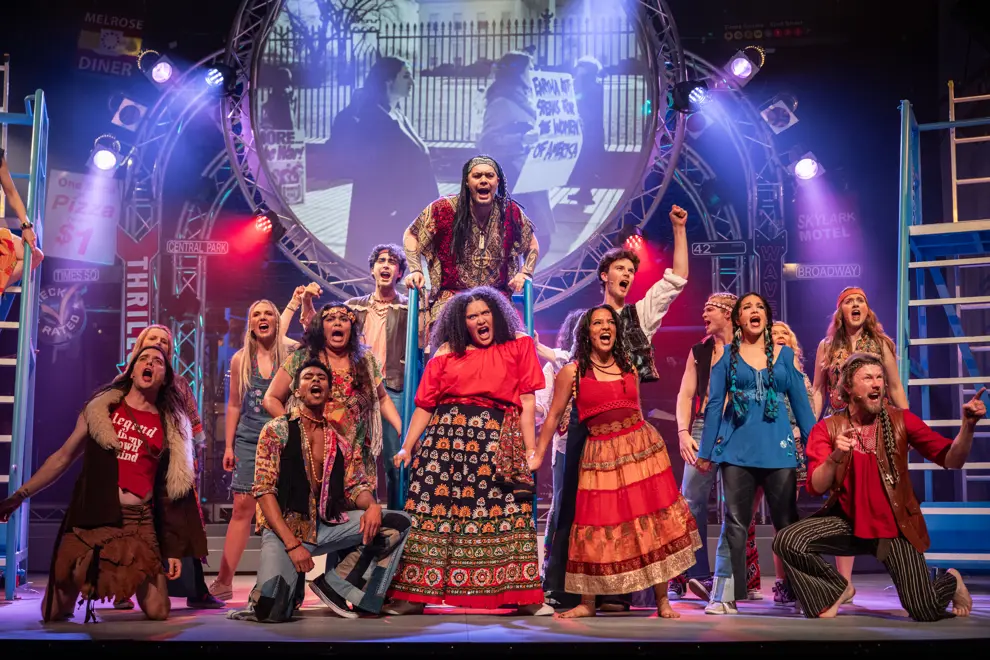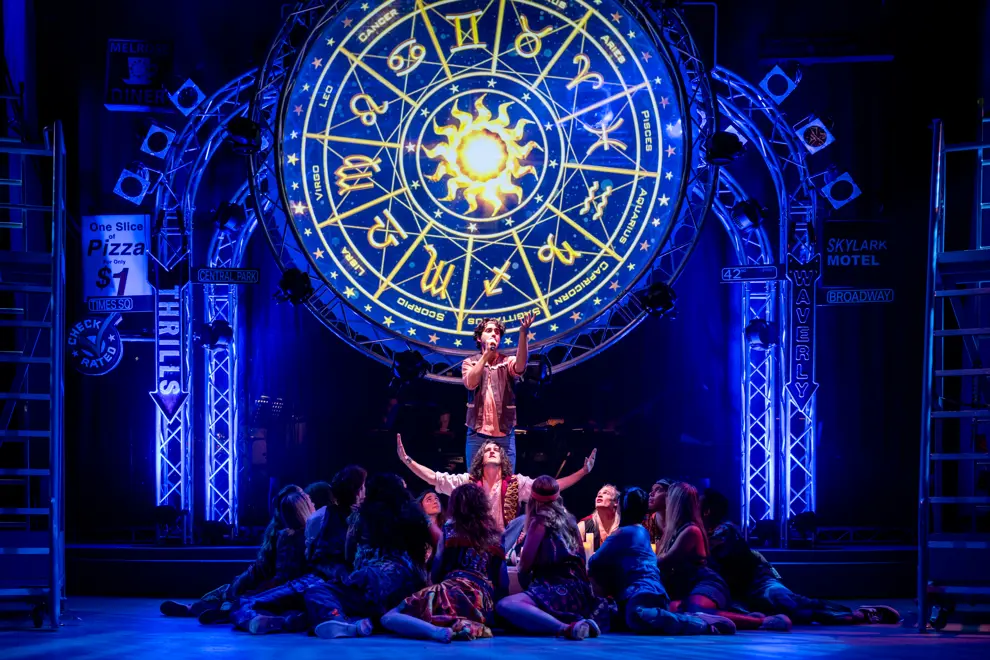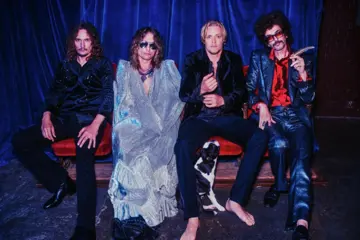The year was 1968. Martin Luther King Jr. and Robert F. Kennedy were assassinated, the Vietnam War escalated, Nixon was elected, the Civil Rights Act was signed, and protests erupted from Paris to Prague. The world was in turmoil.
More than 50 years later, war, political division, racial injustice, climate anxiety, and generational disillusionment still dominate headlines. Hair’s once radical cry for peace and liberation remains just as relevant today.
Which brings us to last night, when Melbourne’s Athenaeum Theatre opened its doors on Halloween. To passersby, the scene on Collins Street might have seemed like a '60s-themed costume party. But all the psychedelic prints and flower crowns heralded something else: Hair was finally back in town, bursting with protest anthems, groovy energy, and a defiant celebration of love, hope, and peace.
Unlike most musicals staged long after the eras they depict, Hair premiered on Broadway in 1968, born from and capturing the very counterculture it celebrates. Directed by Glenn Elston and produced by the Australian Shakespeare Company, this new production reimagines the iconic rock musical while honouring its revolutionary roots.
Don't miss a beat with our FREE daily newsletter
As in those original trailblazing stagings, audiences can expect full nudity, candid depictions of drug use, provocative language, and a cast that demolishes the fourth wall. With book and lyrics by Gerome Ragni and James Rado, and music by Galt MacDermot, Hair will play through November.
The original Broadway production earned two Tony nominations and a Grammy, while the original cast recording was a phenomenon in its own right, selling over three million copies. Despite its success, the music faced harsh criticism from legends including Richard Rodgers, John Fogerty, and John Lennon. Yet, that same music went on to become an indelible part of the cultural zeitgeist. A feature film adaptation followed in 1979, cementing Hair’s enduring influence across stage and screen.
As the audience streamed in, black-and-white footage flickered across the curtain: troops going to war, protest marches, and snapshots of life in the ‘60s. Rock ‘n’ roll poured through the speakers, setting the tone for an evening steeped in nostalgia and rebellion. Projections continued throughout the show, underscoring the action with immersive imagery.
Act I introduces the “tribe,” a free-spirited commune of hippies celebrating the dawning Age of Aquarius. What follows is a series of loose, musical vignettes that blend satire, protest, and personal confession against the backdrop of the Vietnam War and the radical cultural revolution of the time. Karla Erenbots’ bohemian costumes conjure a Summer of Love aesthetic with plenty of denim and flowing florals. Meanwhile, Sue-Ellen Shook’s choreography gives the tribe an uninhibited rhythm, reflecting their nonconformist energy.
Caught between duty and defiance, Alex Cooper’s Claude embodies the story’s central emotional conflict, struggling to reconcile his parents’ expectations with his own anti-war beliefs after receiving his draft notice. Cooper conveys Claude’s inner turmoil with striking sensitivity, capturing a growing sense of disillusionment that mirrors the broader conflict of the show.
Yet, for all the ensemble’s undeniable vocal talent—their harmonies, solo moments, and impressively agile accent work – the music of Hair struggles to stick; much of the music evaporates like smoke from the joints the tribe perpetually puffs, vanishing the moment the music dies, still, in a show where every song feels like a manifesto, a few rise above. Act I standouts include Aquarius and the title song Hair, which celebrates the symbolism of long hair with biblical comparisons and a nod to The Star-Spangled Banner in a playful subversion.
The principal cast of Hair embodies a generation in flux. These weren’t just one-dimensional, long-haired caricatures; they’re restless, non-conformist youth, each character disenchanted yet radical in purpose, grappling with identity and the weight of the world they’ve inherited.
Maxwell Simon brings an unhinged charisma to Berger, while Elizabeth Brennan is luminous as Sheila, a role once inhabited by the late Diane Keaton on Broadway, reimagined here with nuance and defiant vulnerability.
They are joined by Clay Darius, who gives Hud a fierce, commanding edge. Rosie Meader plays Jeanie, once played by Marcia Hines in the 1971 Melbourne staging, with all the exuberance of a children’s TV host, bright-eyed and utterly sincere. Meader and Darius also share bragging rights for best hair in the cast.
Other standouts included Jackson McGovern as Woof, a role played by Tim Curry in the original West End production, Maverick Newman, who nearly steals the show with his comic timing during the My Conviction segment, and Madeleine Somers, who impresses not only as Astrid but in her many scene-stealing bit parts throughout.
Act II unfolds with psychedelic fluidity, blurring the line between reality and hallucination, only for Claude, somewhat unsatisfyingly, to realise that all he truly wants is to eat Cornflakes and be invisible.
Musically, Act II takes lyrical liberties, blending poetry and protest in its standout numbers. Three-Five-Zero-Zero transforms fragments of language, resonant of Allen Ginsberg’s Wichita Vortex Sutra, into a chilling collage of war and the horrors of Vietnam. Good Morning Starshine counters this darkness with whimsy and nonsensical lyrics. The finale, The Flesh Failures (Let the Sunshine In), unites the tribe in a powerful plea for hope and renewal, closing the show on an uplifting yet bittersweet note.
As the cast took their bows and the music faded, it was clear: the most haunting thing this Halloween came not from the supernatural, but from a spirit of defiance that refuses to be silenced. Hair is both a time capsule and a call to action, a living testament to the enduring power of courage and conviction.

